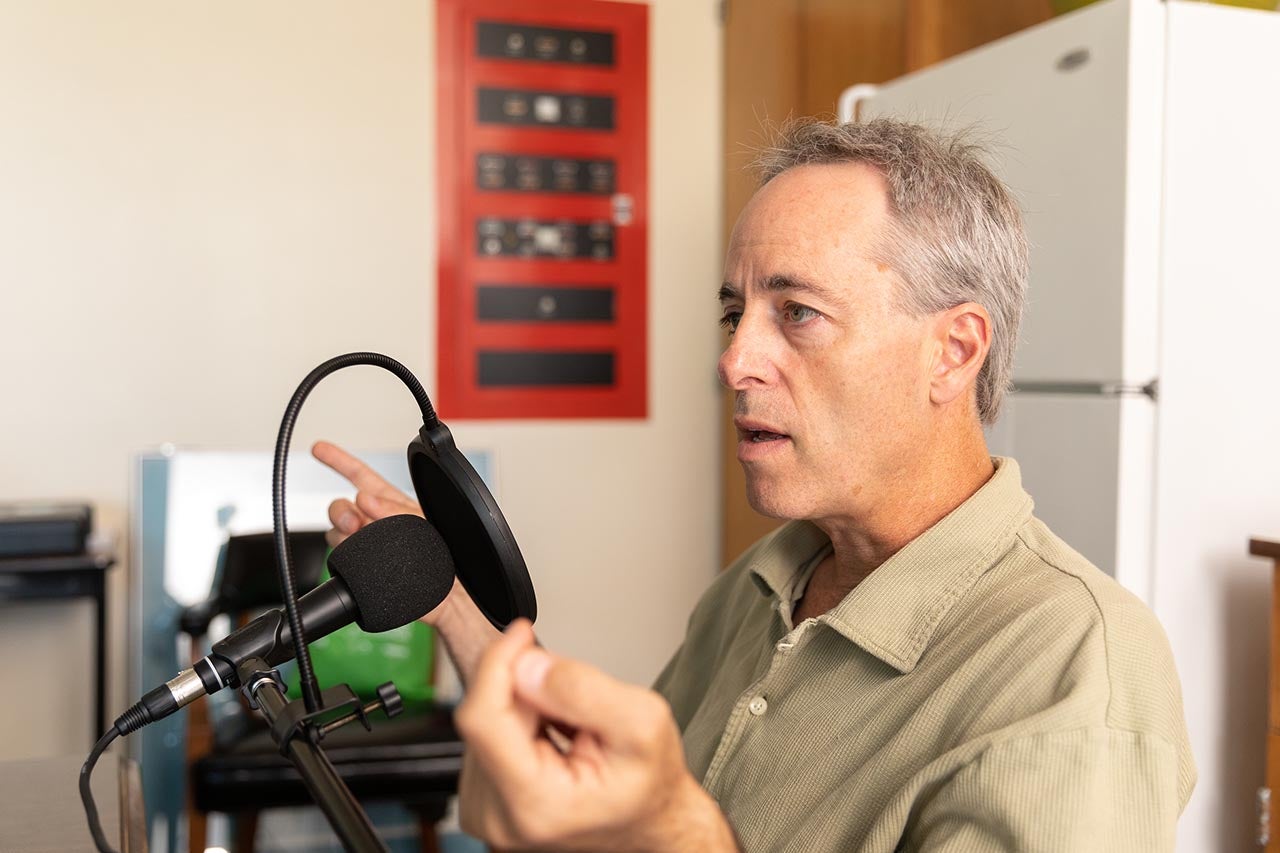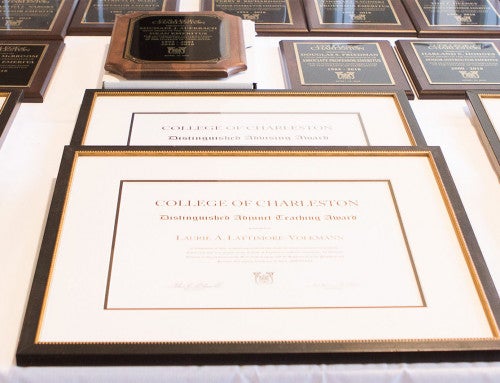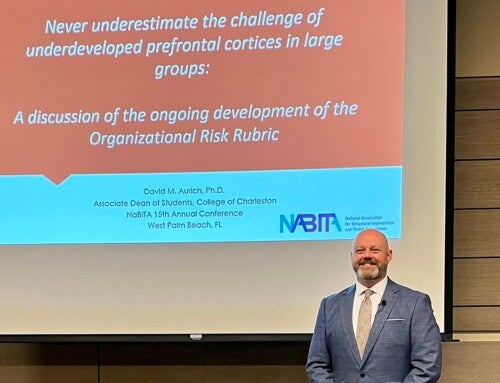Associate professor of biology Bob Podolsky recently received the M. Patricia Morse Award for Excellence and Innovation in Science Education from the Society for Integrative and Comparative Biology (SICB) for his work in science education at the College of Charleston.
The former director of Grice Marine Lab, Podolsky was recognized for his work directing the Fort Johnson Research Experiences for Undergraduates (REU) program, his contributions to SICB for six years as chair of its Educational Council, his “student as producer” approach to classroom teaching and his efforts toward diversity and inclusion in STEM.
“SICB views this award through the lens of what kind of opportunities you provide to students,” says Podolsky, who provides his research students with opportunities to publish and present their work and his classroom students opportunities to get real-world experience through assignments and exercises that ask them to provide expert deliverables – like summaries of research that could possibly appear in a textbook – or to play the role of science communicators to kindle interest in young audiences. “My teaching philosophy is centered around the idea that the best way to learn biology is to put students into the roles of a professional biologist and motivate them with meaningful challenges and genuine products.”
The hope is that undergraduates are motivated to move into STEM careers upon graduation, too – something that was the goal of the REU program since it was established at the College in 1992 and until its final cohort in 2021. The National Science Foundation-supported program combined independent research with activities that promoted career development and science communication skills.
“Part of our pitch to NSF to fund the program was to bring scientists out of the ivory tower to communicate clearly about their research to the general public,” says Podolsky, who served as the program’s director for seven years – coordinating mentored research and professional development for 63 students at five Fort Johnson partner institutions, arranging diversity and identity training for interns and mentors, and designing and delivering workshop training that have led to public communication products like blogs, videos and podcasts as well as professional products like proposals, manuscripts and posters. “My aim as a teacher is to create inclusive spaces and to educate the whole scientist and the whole person.”
The mission of SICB is to foster research, education, public awareness and understanding of living organisms – from molecules and cells to ecology and evolution. SICB encourages interdisciplinary cooperative research that integrates across scales, and new models and methodologies to enhance research and education. SICB is committed to diversity, equity, inclusion and justice as an organizing and guiding principle at every level of the society.




